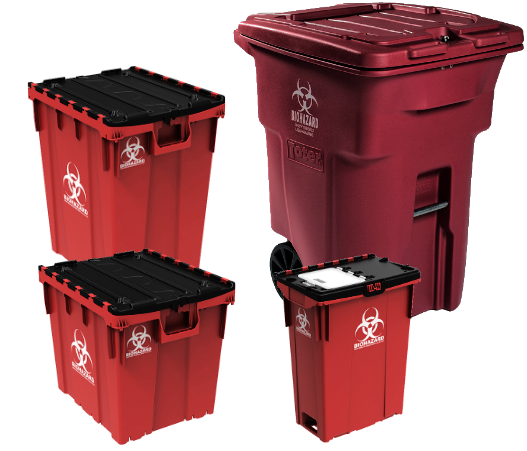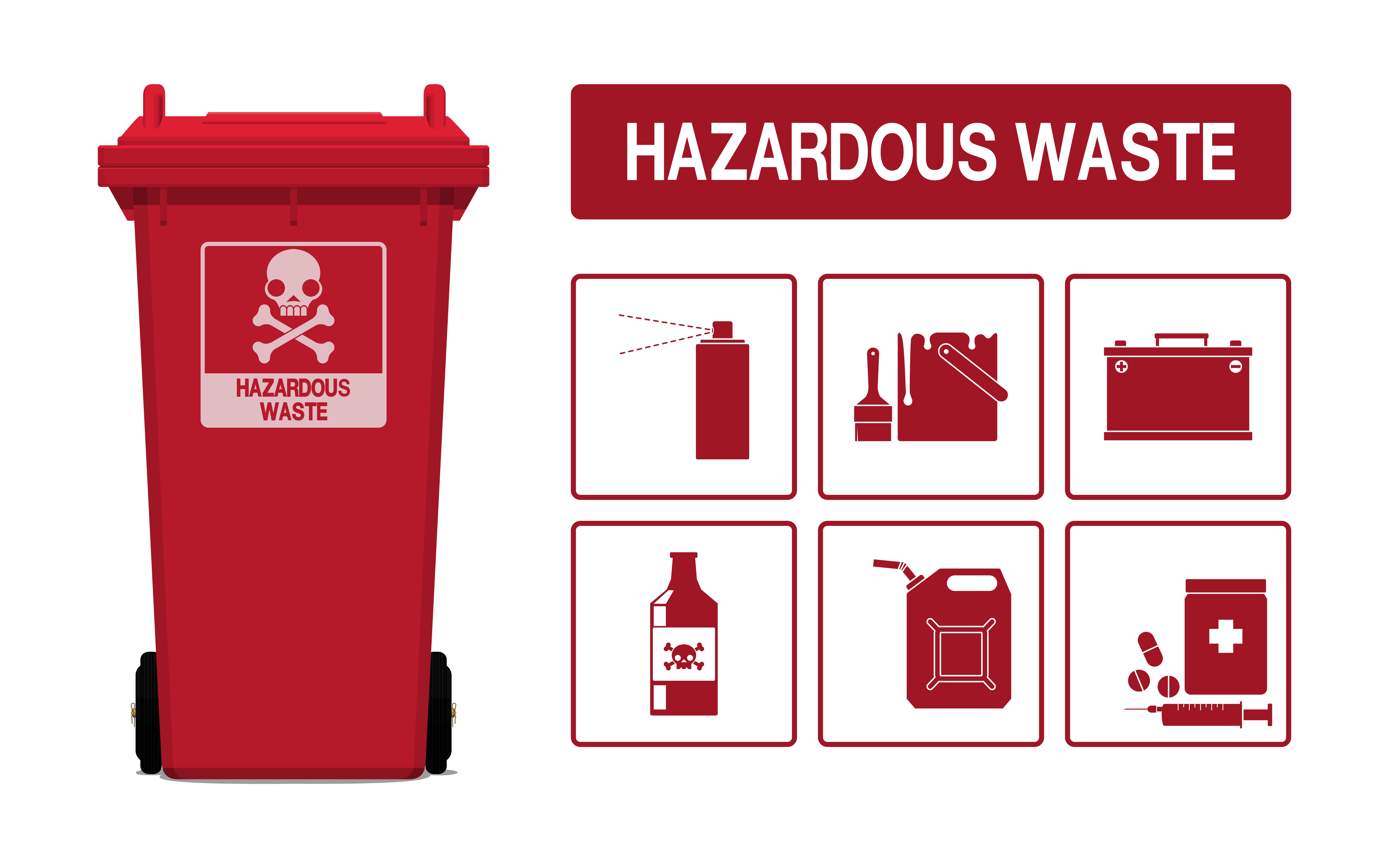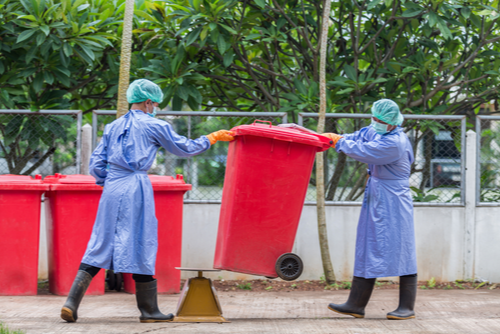Community Care: Seamless and Reliable Medical Waste Removal Near Me
Community Care: Seamless and Reliable Medical Waste Removal Near Me
Blog Article
Stay Ahead of Laws: Specialist Suggestions on Medical Waste Disposal
In a world where the healthcare market is frequently advancing, it is vital for clinical centers to stay ahead of guidelines when it involves the correct disposal of clinical waste. With stringent standards and constant regulatory changes, it can be testing to browse the intricacies of this procedure. Nonetheless, with experienced suggestions, centers can make certain conformity and minimize threats connected with inappropriate garbage disposal. From recognizing the various classifications of medical waste to executing the ideal collection and partition techniques, this discussion will provide beneficial insights and workable ideas to help facilities stay ahead of regulations in the ever-changing landscape of medical waste disposal.
Understanding Medical Waste Categories
Recognizing clinical waste groups is crucial for appropriate disposal and monitoring in health care centers. Medical waste describes any waste created by health care tasks that may pose a hazard to public wellness or the atmosphere. It is important to categorize clinical waste accurately to guarantee its secure handling, therapy, disposal, and transportation.
There are several classifications of medical waste that health care centers require to be acquainted with. One of the most typical groups consist of infectious waste, pathological waste, sharps waste, pharmaceutical waste, and chemical waste. Each classification has certain guidelines and regulations for its proper monitoring and disposal.
Contagious waste consists of products contaminated with blood or various other bodily fluids, such as handwear covers, dress, and lab cultures. Pathological waste refers to human cells, body organs, or body parts that call for special handling and disposal. Sharps waste consists of utilized needles, syringes, and various other sharp objects that can create injury and transmit infections. Pharmaceutical waste makes up ended, unused, or contaminated drugs that need mindful handling and disposal. Last but not least, chemical waste consists of solvents, disinfectants, and other chemical substances used in healthcare centers.
Remaining Up-To-Date With Regulatory Adjustments
Remaining existing with governing adjustments is crucial for healthcare centers to make sure compliance and proper administration of clinical waste disposal. medical waste removal service. With policies continuously advancing, it is necessary for healthcare facilities to remain current to prevent penalties, fines, and prospective harm to the atmosphere and public health
To remain ahead of governing adjustments, health care facilities ought to establish a system for surveillance and monitoring updates. This can be done by subscribing to regulative newsletters, participating in workshops and meetings, and proactively taking part in industry organizations. Furthermore, centers need to designate a team participant or group accountable for staying educated and distributing info to pertinent stakeholders.
Routine communication with governing agencies is also crucial. Health care centers must develop connections with neighborhood, state, and federal agencies to ensure they are aware of any kind of adjustments in laws that might affect their waste management practices. This can be done through routine conferences, engagement in public comment periods, and proactive engagement with governing companies.
Moreover, health care facilities should consider partnering with waste administration business that concentrate on medical garbage disposal (medical waste disposal services with WasteX). These companies are typically fluent in the most up to date policies and can supply advice and support to make sure conformity
Carrying Out Proper Collection and Segregation Methods
To efficiently handle clinical garbage disposal, health care facilities have to develop proper collection and segregation techniques in conformity with governing standards. Implementing these methods guarantees the safe handling and disposal of potentially hazardous products, safeguards the setting, and lessens the danger of infections and injuries to healthcare employees and the public.
Proper collection and segregation approaches involve making use of marked medical waste disposal services with WasteX containers and classifying systems. Healthcare facilities ought to give clearly identified containers for various kinds of medical waste, such as sharps, infectious waste, pharmaceutical waste, and non-hazardous waste. These containers need to be color-coded and plainly significant to avoid complication and advertise easy recognition.
Additionally, health care facilities need to educate their staff on the right procedures for gathering and setting apart medical waste. This includes informing them on the different kinds of waste, the ideal containers to use, and the importance of complying with policies and standards. Normal training sessions and refresher programs need to be performed to make sure that employee continue to be current on best practices.
Furthermore, healthcare facilities should establish a system for regular collection and disposal of clinical waste. This may entail partnering with licensed waste monitoring firms that focus on medical waste disposal. These firms will ensure that the accumulated waste is transferred and taken care of in conformity with regulative needs.
Selecting the Right Disposal Approaches

Incineration is just one of the most typical and efficient approaches for dealing with particular kinds Clicking Here of medical waste, such as pathological waste and sharps. It includes the regulated combustion of waste at high temperature levels, reducing it to ash. Incineration can release dangerous pollutants right into the air and contribute to air contamination.

Chemical treatment entails the usage of chemicals to decontaminate and neutralize the waste. Microwave therapy utilizes microwave energy to heat and decontaminate the waste.
Guaranteeing Conformity Via Documents and Training
After meticulously thinking about the suitable disposal methods for medical waste, medical care facilities must make sure compliance with guidelines and decrease ecological effect by executing reliable documents and training treatments. This action is vital in keeping a risk-free and lasting atmosphere for both medical care employees and the basic public.

Medical care employees that take care of clinical waste must get appropriate training on waste segregation, handling, and disposal treatments. By giving thorough training, medical care centers can equip their personnel to make educated decisions and minimize the risk of inappropriate waste disposal.
Verdict
Finally, staying in advance of laws in clinical waste disposal is essential for healthcare centers. medical waste removal. Recognizing the different classifications of medical waste, remaining updated with regulatory adjustments, carrying out correct collection and segregation approaches, selecting the suitable disposal approaches, and making certain compliance via documentation and training are all essential actions. By complying with these standards, health care organizations can properly dispose and manage of medical waste in a safe and liable manner
From understanding the different classifications of clinical waste to carrying out the right collection and partition methods, this conversation will supply important understandings and actionable ideas to assist centers stay ahead of laws in the ever-changing landscape of medical waste disposal. - medical waste disposal services with WasteX
The most typical groups consist of transmittable waste, pathological waste, sharps waste, pharmaceutical waste, and chemical waste. Medical care centers should provide clearly labeled containers for different types of medical waste, such as sharps, infectious waste, pharmaceutical waste, and non-hazardous waste. Healthcare facilities ought to establish an extensive system to tape-record and track all elements of clinical waste disposal, consisting of types of waste created, amounts, and disposal methods used. Medical care employees who handle medical waste should receive ideal training on waste partition, taking care of, and disposal treatments.
Report this page